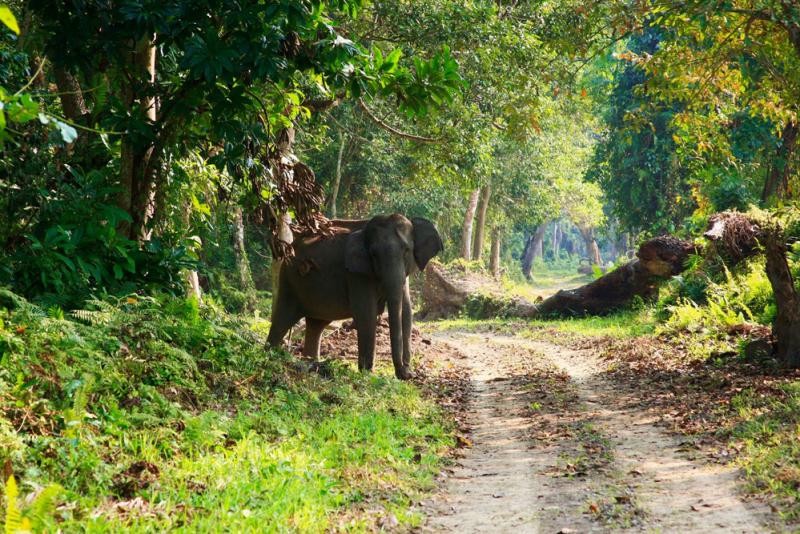Gashaka-Gumti National Park is located in a mountainous region of North-east Nigeria adjacent to the international border with Cameroon, and immediately to the North of the Mambilla plateau. No roads cross this remote region and only a few lonely footpaths wind through the forested mountains towards Cameroon. Visitors to the park are able to enjoy lush forests, wide sweeping grasslands, cool highland plateaus, rugged moody mountains, abundant wildlife, and fascinating ethnic cultures, all combined within a single protected area.

There are few other places in the world that contain such spectacular scenery and such diverse wildlife. The hidden corner of West Africa that is Gashaka-Gumti National Park is surely one of the continent’s best kept secrets.
Gashaka-Gumti National Park, the largest park in Nigeria, covers 6,731 sq km of wilderness. The park’s name is derived from two of the region’s oldest and most historic settlements: Gashaka village in Taraba State, and Gumti village in Adamawa State. Gashaka-Gumti National Park was created by Federal Decree in 1991 by the merging of Gashaka Game Reserve with Gumti Game Reserve. In this guidebook we will use the term Gashaka sector to indicate the Southern half of the park, and the term Gumti sector to indicate the Northern half.
The Northern, Gumti sector of the park is relatively flat and covered with woodlands and grasslands, whilst the Southern, Gashaka sector is more mountainous and contains vast expanses of rainforest as well as areas of woodlands and montane grassland. This rugged terrain is characterised by steep, thickly forested slopes, deep plunging valleys, precipitous escarpments and swiftly flowing rivers. Altitude ranges from 450 metres above sea level in the wild savannah plains of the Northern sector, to the peaks and pinnacles of Gangirwal in the Southern park sector, which at a staggering 2,400 metres above sea level, represents Nigeria’s highest mountain.
It is the sheer variety of different habitats within Gashaka-Gumti National Park that makes the area so uniquely rich in wildlife. In fact the park is actually an intricate mosaic of montane grasslands, savannah woodlands, swamps, lakes, mighty rivers, dark lowland rainforests, and luxuriant, montane rainforests strewn with ferns and orchids. Each habitat supports its own distinctive community of plants and animals.
Rainforests provide a haven for animals such as the Giant forest hog, leopard, Yellow-backed duiker, Golden cat, and many different primate species including chimpanzees. Woodland savannahs are home to buffalo, lion, elephant, and Wild dog, as well as various antelopes such as waterbuck, Roan antelope, kob, hartebeest and the world’s largest antelope, the Giant eland. The mountains of the park harbour populations of the rare Adamawa mountain reedbuck, in addition to Black-and-white colobus monkey, baboon, warthog, oribi, and klipspringer. Whilst its largest unspoilt rivers contain hippos, crocodiles, otters and a wide variety of fishes. The park is officially labelled as one of Africa’s “Important Bird Areas” – and with more than 500 species found here, this is certainly no exaggeration. Visiting bird watchers constantly add new species to the list. An additional abundance of creatures such as butterflies, flowers and trees, makes this park a naturalists’ paradise, unrivalled anywhere for diversity.
By Andrew Dunn

I hope the animals where not cannibalise by Boko haram terrorist?